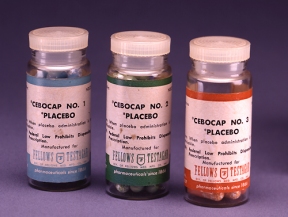
When it comes to mental health treatment, the idea of “mind over matter” may not be way off the mark. According to findings published in JAMA Psychiatry, patients who respond most strongly to a dummy pill also reap the most benefits when they are given real mental health drugs. The placebo effect is a very common and perplexing physical response that occurs during research when a fake treatment, such as a sugar pill, improves a patient’s illness. Scientists theorize that this placebo effect happens based only on the patient’s expectation that the treatment will work. (Interestingly, previous mental health research found the placebo effect accounted for between 30 and 45 percent of people’s positive response to antidepressants.) For this new study, researchers gave 35 people—a mix of men and women with major depressive disorder,—a “new depression drug” that was actually a placebo. A few weeks later, scientists gave participants a real medication.
During the study, researchers scanned the brains of these patients’ for reactions in their mu-opioid systems. (The mu-opioid system is also known as the brain’s natural “painkiller system.”) Scientists noted that those who reported the greatest improvement in depression symptoms after taking placebos also showed the biggest response in this part of the brain. In addition, these same people were also more likely to report a positive response after they took antidepressants.












